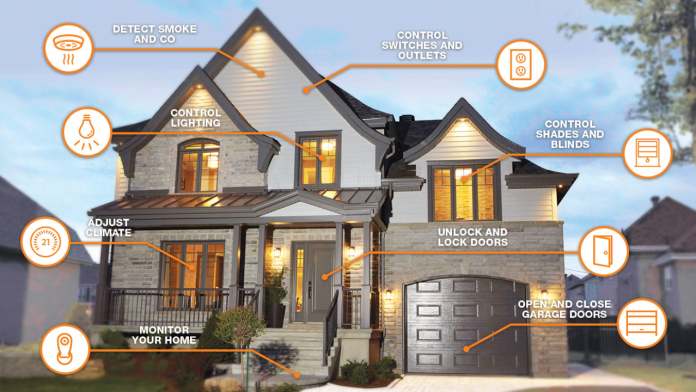The smart home is one of the popular modernizations in the present world that is characterized by advanced technology, and almost all aspects of a smart home, including security, have not been exempted. Modern home security systems are gradually becoming the standard when it comes to home protection, with additional features and flexibility. However, despite their growing popularity, there are still several home security myths: debunking misconceptions is essential to understanding the true benefits and limitations of these systems.
Integration with Voice Assistants
Home security systems that are combined with home voice control systems allow a landholder to manage the security of the home without having to come into contact with any of the apparatus. For instance, homeowners can lock doors, activate alarms, or monitor cameras through voice commands only. This hands-free control not only has the advantage of convenience but also has the advantage in that it is safer to be hands-free in an emergency.
Smart Lock and Access Control
Traditional locks can be easily breached or can be opened by anyone who has the key to the door. Smart aosu locks are extra secure than old-style ones in the sense that they provide more varieties. These locks can be functioned remotely, which is why an owner can lock or unlock doors using their phones. Furthermore, the house owners can have exclusive control of the house via unique codes or keys Smart locks can let some strangers or some members of the house by allowing them to gain access to the house by way of entering special codes or by holding keys.
Integration with Security Cameras
Security cameras and aosu video doorbells are other inseparable components of smart home security systems. Smart doorbell cameras allow a human to observe the visitors and even communicate with them at the front door even if they are not home. This integration is particularly useful in a scenario that seeks to capture the visitors and prevent package theft and intruders.
Automation and Smart Lighting
Lighting is one of the most significant factors that affect home security. Through automation, one can program the lighting to turn on after a given time or even turn off at some given time or even from a remote place. For instance, during a tour of a house, all the lights may be switched on at certain intervals so that burglars will see that there is someone at home. Another useful feature is in the lights that turn on when the car is moving: The lights in the car should be on when the car is in motion.
Smart Alarms and Sensors
Modern aosu smart home security systems are not only alarms and sensors that can detect motion but have many more functions. Smart door and window sensors can notify the homeowner when an entrance is opened and glass break sensors can detect the sound of breaking glass and trigger alarms. These systems can be scheduled to operate at the same rate and be coordinated with other smart devices. For instance, if the window sensor is triggered it will turn on the security cameras, and alarms and send real-time alerts to the homeowner. This level of automation offers security that cannot be offered by the traditional systems of security.
Telemonitoring and Alerting in Real Time
Other advantages of smart home integration include the ability to see the home through other connected devices from a different location. Smart security cameras for example assist landowners to monitor the live streams from their homes using their phones or computers. This means that regardless of whether one is at work, on holiday, or just out of town, one can be able to see what is fashionable at their home in real-time. Also, smart home systems provide real-time alerts. If a camera detects motion or a smart sensor records something that looks fishy, the homeowner’s device immediately notifies them.
Smart Home Security in the Future
Smart home security is expected to advance as technology advances even more in the future. Technological advancements such as artificial intelligence AI and machine learning will lead to the creation of systems that are capable of learning the homeowner schedule and the patterns of presentation of the home environment and are in a position to also detect slight changes. Further, research for the improvement of security such as the use of facial recognition and fingerprint scanners will increase home protection. In the future years, more households are likely to adopt smart home integration into their homes because of the need for safer and more convenient homes.
Conclusion
Smart integration of homes has enhanced home security since it can offer aspects that cannot be offered by standard security systems like integrated monitoring, integrated alerting, and integrated automation. They can now open or close their doors, watch their homes through cameras, activate alarms, or control fixtures using voice commands. In the future, smart home security systems will advance with smart technologies making a safer and more interconnected home across the globe.




